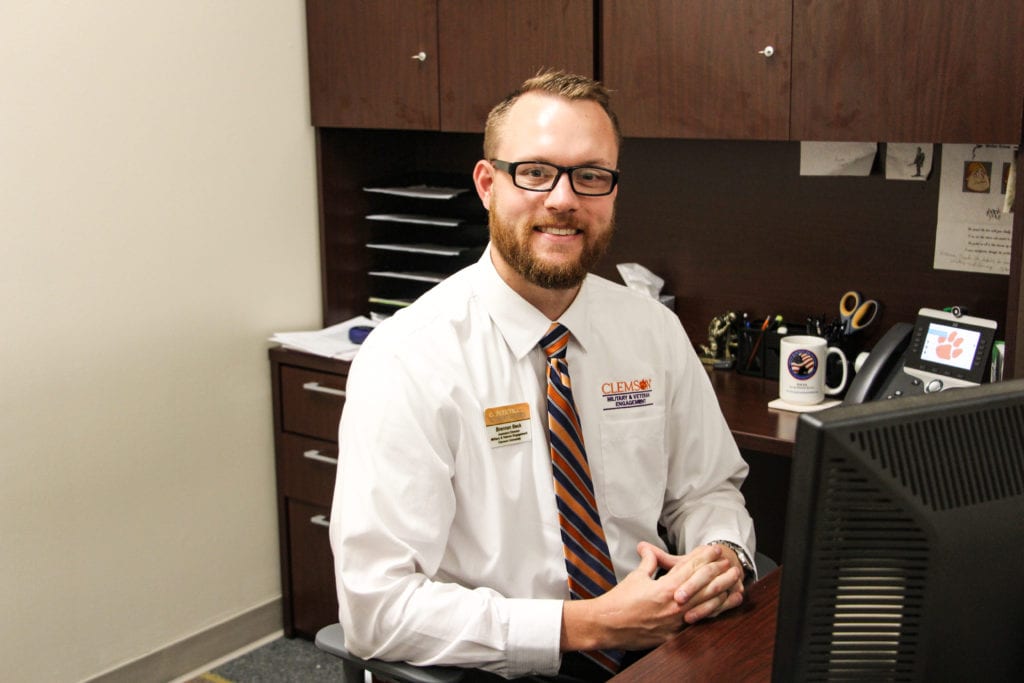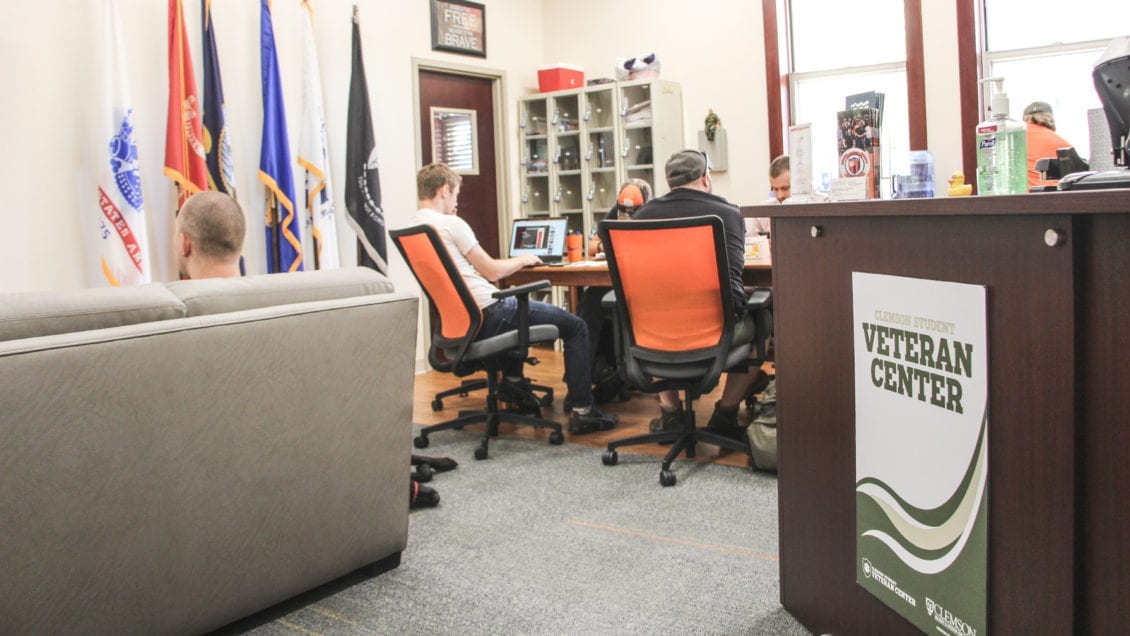Imagine navigating a crowded street during a time of armed conflict. Immersed in a convoy of Humvees belonging to the United States Army, barely slowing down to avoid being the target of an attack from the enemy.
Director of Military and Veteran Engagement Brennan Beck — an Army veteran who served two overseas deployments — described the scene as “routine” after sharing a 2 ½ minute point of view dashcam video from the mid-2000s to a group of Clemson University faculty and staff as part of his office’s Green Zone Training on Thursday, March 25.
Beck asked participants on the Zoom presentation to type their reactions into the chat while watching the video.
No rules. Kids running across the road. My heart is beating fast. Stressful.
“It took me years to understand what someone meant when they said, ‘This is stressful,’” Beck said. “I did this for 24 months of my life and I find it fascinating, because there is a lot going on. When a veteran is exposed to this kind of environment, with stimuli, it can be difficult when they come home and it’s peaceful, calm and quiet — requiring them to immediately adjust.”

Beck quipped that when he returned to his home state of California, he went from the exact scenario participants saw in the video to an altogether different approach to handling traffic in his Ford Explorer.
“It dawned on me that I needed to recondition and change my behavior to the civilian environment,” he said. “It didn’t mean I was crazy or broken. But, it meant I was operating in one environment and transitioning into a completely different one.”
Green Zone Training was established years ago to be just that — a space for student veterans to feel supported in the transition to higher education.
Beck and his graduate assistant, Peyton Bade, have collaborated to host what have traditionally been in-person trainings over the virtual space throughout the 2020-21 academic year. Beck speaks to faculty and staff, while Bade focuses on students. To date, nearly 200 participants have taken part in Green Zone Training over the past two semesters.
According to Fall 2020 data, Clemson has 348 verified student veterans and many more military-connected students and dependents. Most live away from main campus, more than a quarter of them have at least one child and half work part- or full-time. The median undergraduate student veteran is 27 years in age and graduate student veteran is 37.
Faculty and staff often find themselves in situations where they are encouraged to connect student veterans to campus resources that will assist them in the transition to civilian life, both inside and outside of the classroom.
As a former military wife, Katie Vogl of the Provost’s Office related to the training all too well.
“When I was an undergraduate at Clemson, my husband at the time mentioned how veterans often felt alone and on an island,” Vogl said. “I felt that way as a spouse of someone who was deployed.”
Vogl ended up leaving Clemson in the mid-2000s to be closer to supportive resources. That’s why she found Thursday’s presentation to be immensely helpful from the standpoint of learning about veterans in higher education from someone like Beck, who has lived and breathed all aspects — from both the military and civilian perspective.
“I always knew Brennan, but didn’t truly know the resources his office provided,” she admitted. “Being able to recognize that and help students who are alone on an island is important to understand.”
Beck’s presentation looks at the makeup of the average student veteran through a strengths-based lens. He points out a veteran’s transition strengths, such as cross-cultural experience and leadership qualities.
Conversely, he lays out difficulties and challenges, such as struggling with anxiety or the weight of readjustment expectations. He also points to stressors, mental health concerns and ways to reduce barriers to adequately support student veterans.
Significant strides have been made in recent years. In addition to Military and Veteran Engagement, students receive VA benefits support through the Registrar’s Office. They congregate — when COVID-19 doesn’t disrupt things — in the Student Veteran Center located in Vickery Hall. Many join the Student Veterans Association, recently named the National Chapter of the Year.
Asked what specifically they would like faculty, staff and students who participate in Green Zone Training to know, one student veteran said, succinctly: “We may be accustomed to being successful and too proud to ask for help.”
Beck feels that because of Green Zone Training, student veterans receive far better support in their challenge of shifting from one identity to the next.
“Helping a student veteran realize college is not as intimidating as they fear, by connecting them to resources that can be of service to them, is critical to enhancing their experience,” he said. “If we provide them with that guidance, they are going to thrive at Clemson.”
NOTE: View this link to request Green Zone Training for your organization or department.

